Introduction
In Christchurch, commercial properties must adhere to stringent safety and compliance standards, especially given the city’s seismic activity. A commercial building inspection is a thorough evaluation that identifies potential issues affecting the safety, integrity, and value of a property. This article explores the significance of a commercial building inspection in Christchurch, detailing its key components and the inspection process to help business owners and investors make informed decisions.
Importance of Commercial Building Inspection in Christchurch
A commercial building inspection is crucial for ensuring that a property meets all necessary safety regulations and structural standards. Given Christchurch’s history with earthquakes, these inspections are vital in identifying any vulnerabilities that could jeopardize the safety of occupants and the integrity of the building. A detailed inspection report provides essential insights into the property’s condition, helping stakeholders avoid unforeseen issues and ensure a secure investment.
Key Components of a Commercial Building Inspection
Structural Assessment in Commercial Building Inspection
The foundation of any commercial building inspection is the structural assessment. Inspectors evaluate the building’s foundation, load-bearing walls, roof, and other critical structural elements to ensure they are sound and free from significant defects. In Christchurch, this is especially important due to the potential for seismic activity.
Electrical and Plumbing Systems
Inspecting the electrical and plumbing systems is essential to ensure they comply with safety standards and are functioning correctly. Identifying and addressing issues in these areas can prevent potential hazards and costly repairs, ensuring the safety and efficiency of the building’s operations.
Exterior and Interior Conditions
The inspection covers both the exterior and interior conditions of the property. This includes evaluating the roof, cladding, windows, doors, and internal finishes for any signs of damage, wear, or potential issues that could impact the building’s performance and safety.
Fire Safety and Emergency Systems
Fire safety is a critical component of a commercial building inspection. Inspectors assess the building’s fire safety systems, including alarms, sprinklers, and emergency exits, ensuring they meet regulatory requirements and are in proper working condition.
HVAC Systems
Heating, ventilation, and air conditioning (HVAC) systems are vital for maintaining a comfortable and safe environment within commercial buildings. Inspectors evaluate these systems to ensure they are efficient, compliant with standards, and free from issues that could affect their performance.
Compliance with Building Codes and Regulations
Ensuring compliance with local building codes and regulations is a fundamental aspect of the inspection. This includes checking for adherence to seismic standards, accessibility requirements, and other relevant codes that ensure the safety and legality of the building.
Benefits of a Commercial Building Inspection
Risk Mitigation in Commercial Building Inspection
A commercial building inspection helps identify potential risks and hazards that could affect the safety and functionality of the property. By addressing these issues proactively, owners and investors can mitigate risks and ensure a safe environment for occupants.
Financial Protection
A thorough inspection protects against unexpected costs by uncovering hidden issues that may require significant repairs or maintenance. This financial protection is crucial for maintaining the value and profitability of the investment.
Informed Decision-Making
For investors and business owners, a detailed inspection report provides essential information about the property’s condition. This knowledge allows for informed decision-making regarding purchases, leases, and maintenance planning, ensuring a sound investment strategy.
Compliance Assurance
Ensuring that a commercial property complies with all relevant building codes and regulations is essential for legal and operational reasons. A comprehensive inspection confirms compliance, preventing potential legal issues and ensuring smooth business operations.
The Commercial Building Inspection Process
Initial Consultation in
The process begins with an initial consultation, where the inspector discusses the scope of the inspection with the client. This ensures that all specific concerns and areas of interest are addressed during the inspection.
Detailed Examination
The inspector conducts a thorough examination of the property, covering all key components such as structural integrity, electrical and plumbing systems, exterior and interior conditions, fire safety systems, and HVAC systems. This detailed inspection can take several hours to complete, depending on the size and complexity of the building.
Comprehensive Report
After the inspection, the inspector compiles a detailed report outlining their findings. This report includes photographs, descriptions of any issues identified, and recommendations for repairs or further assessments. The report provides a clear overview of the property’s condition, allowing clients to make informed decisions.
Follow-Up Actions
Based on the findings in the report, property owners can take necessary follow-up actions. This may involve negotiating repairs with contractors, planning maintenance work, or addressing compliance issues to ensure the building meets all required standards.
Conclusion
A commercial building inspection in Christchurch is an essential process for ensuring the safety, compliance, and value of a property. By providing a thorough assessment of the building’s condition, these inspections offer critical insights for business owners and investors, facilitating informed decisions and securing a sound investment. Whether you are purchasing a new commercial property or managing an existing one, a comprehensive building inspection is an indispensable tool for protecting your investment and ensuring operational safety and compliance.
